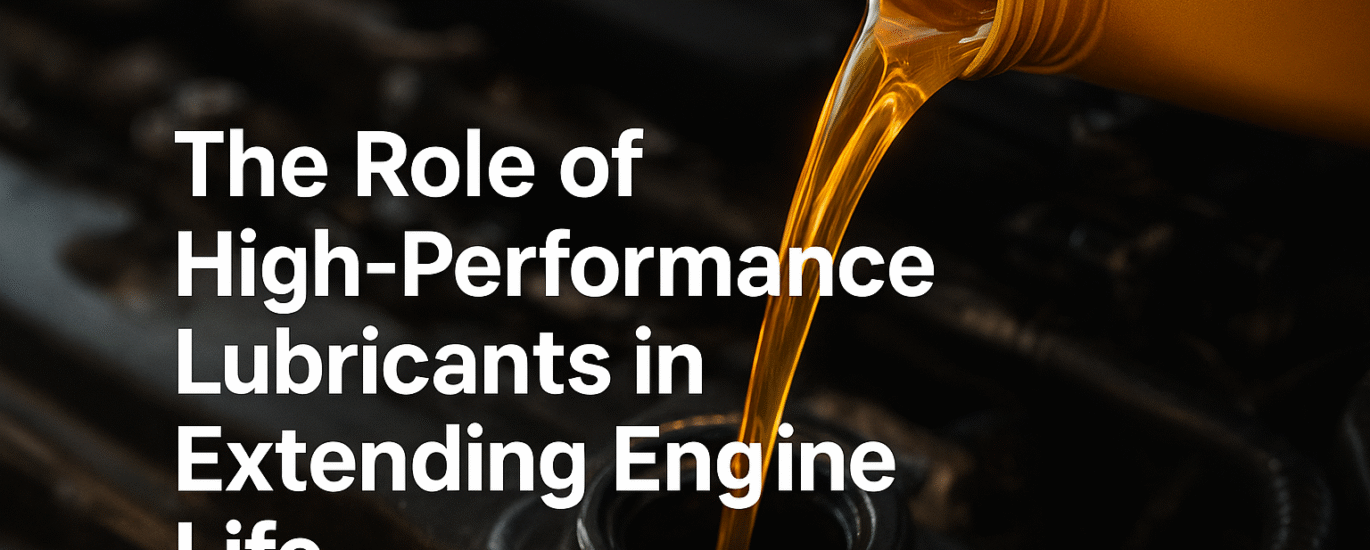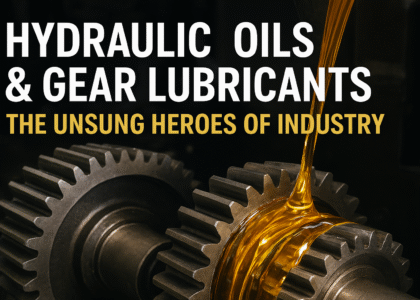Engines are the heart of every vehicle and industrial machine. Just like the human body needs blood to function, engines rely on lubricants to keep their moving parts running smoothly. Using the right lubricant is not just about reducing friction—it’s about ensuring long-term performance, lowering maintenance costs, and boosting efficiency.
In this blog, we’ll dive into why lubrication is vital, the benefits of high-quality lubricants, how to choose the right oil, and the tell-tale signs that it’s time for an oil change.
🔧 Why Lubrication is Critical for Moving Parts
Inside every engine, countless parts move at high speed and under intense pressure. Without lubrication:
- Friction increases, causing metal parts to wear down faster.
- Heat builds up, which can lead to engine damage.
- The engine consumes more fuel to overcome resistance.
A good lubricant creates a protective film between moving parts, reducing wear, carrying away heat, and preventing rust or corrosion.
🚗 Benefits of High-Quality Lubricants
Not all oils are created equal. Investing in high-performance lubricants can deliver:
- Engine Protection – Reduces wear and extends component life.
- Reduced Wear & Tear – Minimizes friction and surface damage.
- Improved Fuel Efficiency – Smooth-running engines require less fuel.
- Longer Oil Life – Advanced formulations resist breakdown under extreme temperatures.
- Cleaner Engines – Prevents sludge and deposits.
⚙️ Choosing the Right Oil for Your Engine
Different engines require different lubricants. Here’s a quick guide:
- Diesel Engines: Need oils with higher viscosity and additives to handle soot and combustion byproducts.
- Petrol Engines: Prefer lighter oils that improve fuel economy and reduce start-up wear.
- Industrial Engines: Require specialized lubricants that can withstand extreme loads, pressures, and environmental conditions.
Always check your manufacturer’s manual to ensure the correct grade and specification.
⏳ Signs Your Engine Oil Needs Changing
Even the best lubricants don’t last forever. Watch out for these signs:
- The oil has turned dark, dirty, or gritty.
- Your engine makes unusual knocking or grinding noises.
- The oil warning light appears on your dashboard.
- Mileage exceeds the manufacturer’s recommended oil change interval.
Regular oil checks and timely replacements can prevent costly engine repairs.
✅ Final Thoughts
High-performance lubricants are more than just engine oil—they’re an investment in durability, reliability, and efficiency. Whether you drive a car, operate heavy machinery, or manage industrial equipment, the right lubrication can mean the difference between smooth performance and unexpected breakdowns.



